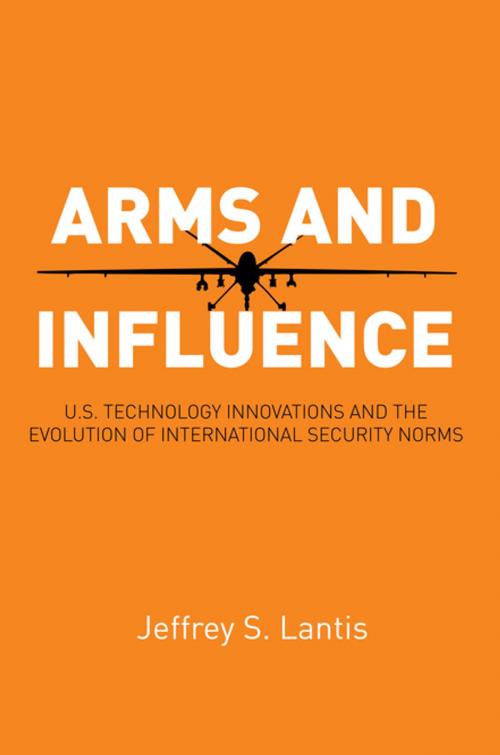Arms and Influence
U.S. Technology Innovations and the Evolution of International Security Norms
Nonfiction, Social & Cultural Studies, Political Science, International, International Security| Author: | Jeffrey S. Lantis | ISBN: | 9780804799843 |
| Publisher: | Stanford University Press | Publication: | July 27, 2016 |
| Imprint: | Stanford Security Studies | Language: | English |
| Author: | Jeffrey S. Lantis |
| ISBN: | 9780804799843 |
| Publisher: | Stanford University Press |
| Publication: | July 27, 2016 |
| Imprint: | Stanford Security Studies |
| Language: | English |
Arms and Influence explores the complex relationship between technology, policymaking, and international norms. Modern technological innovations such as the atomic bomb, armed unmanned aerial vehicles (UAVs), and advanced reconnaissance satellites have fostered debates about the boundaries of international norms and legitimate standards of behavior. These advances allow governments new opportunities for action around the world and have, in turn, prompted a broader effort to redefine international standards in areas such as self-defense, sovereignty, and preemptive strikes.
In this book, Jeffrey S. Lantis develops a new theory of norm change and identifies its stages, including redefinition (involving domestic political deliberations) and constructive norm substitution (in multilateral institutions). He deftly takes some of the most controversial new developments in military technologies and embeds them in international relations theory. The case evidence he presents suggests that periods of change are underway across numerous different issue areas.
Arms and Influence explores the complex relationship between technology, policymaking, and international norms. Modern technological innovations such as the atomic bomb, armed unmanned aerial vehicles (UAVs), and advanced reconnaissance satellites have fostered debates about the boundaries of international norms and legitimate standards of behavior. These advances allow governments new opportunities for action around the world and have, in turn, prompted a broader effort to redefine international standards in areas such as self-defense, sovereignty, and preemptive strikes.
In this book, Jeffrey S. Lantis develops a new theory of norm change and identifies its stages, including redefinition (involving domestic political deliberations) and constructive norm substitution (in multilateral institutions). He deftly takes some of the most controversial new developments in military technologies and embeds them in international relations theory. The case evidence he presents suggests that periods of change are underway across numerous different issue areas.















